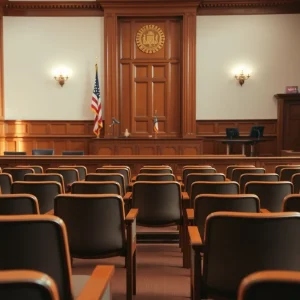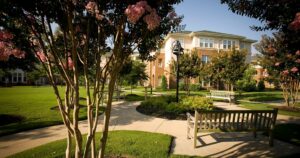Memphis, Shelby Co. Eyeing their Own Crime Lab to Expedite DNA, Ballistics Testing
Daily Efforts for Crime Lab Proposal
Memphis and Shelby County are looking to establish their own crime lab, a process which has been championed by Shelby County District Attorney Steve Mulroy. This proposal has received significant backing and was indeed brought into sharp focus during the aftermath of Eliza Fletcher’s abduction and murder. Despite the initial interest, discussion about having a dedicated crime lab weakened before its recent resurgence.
Mulroy has been at the forefront of advocating for this crime lab, even though the exact specifics are yet to be confirmed. A bill in the Tennessee General Assembly, receiving bipartisan support, aims to kickstart a feasibility study for the proposal. Recently, the Shelby County Board of Commissioners gave their approval, passing a resolution in favor of the study.
Call for State Funding
According to Mulroy, he has already received a letter of support from Shelby County Mayor Lee Harris. In a recent press conference, Mulroy emphasized the necessity of state support, not just for the feasibility study but for the actual funding required to set up a crime lab locally, similar to the one in Metro Nashville.
However, critical details such as the cost, location, and potential operators of the crime lab are still to be determined. Mulroy previously suggested a building which was earlier home to the Tennessee Bureau of Investigation’s Memphis crime lab as a potential site, before its relocation in April 2021.
The Ideal Solution
“[That building is] still here. It has infrastructure that’s suitable for a crime lab,” Mulroy commented. “It has portable equipment for a crime lab. It is not being used. The ideal solution would be to give us that, and a number of us local leaders have been advocating for exactly that.”
Current Position of Forensic Testing
At present, the Memphis Police Department and Shelby County Sheriff’s Office are in the habit of sending their rape kits and other forensic evidence to the TBI’s crime lab in Jackson for testing. This practice has been critiqued in the past due to backlogs. Mulroy confirmed that he doesn’t see a local crime lab as an alternative to using TBI’s services, but as a method to expedite some tests, such as rapid DNA testing, confirmatory ballistics, and cell phone forensics for non-homicide crimes.
The Proposal of a 24-hour Ballistics Lab
Mulroy expanded on his vision of a local crime lab, suggesting the inclusion of 24-hour ballistics testing. With this service, any gun taken into evidence could be photographed, test fired, and entered into the national eTrace system for tracking of previous owners and users within a day. Reducing the current time frame of several months, this could be instrumental in faster resolution of gun crimes.
The Future of Memphis Crime Lab
The decision on the managing entity of the crime lab is still under discussion. Mulroy stated that the county mayor’s office does not wish to operate the lab. Instead, he proposed a joint venture between the City of Memphis and Shelby County Government with an independent board. Another idea was put forth by data officer Vishant Shah for a forensic-focused private 501(c)(3) nonprofit. A similar model is said to be successful in Houston.








